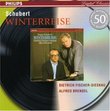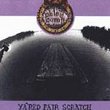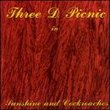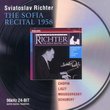| All Artists: Montserrat Caballé, José Carreras, Ingvar Wixell, Sir Colin Davis, ROH Covent Garden Orchestra and Chorus, Samuel Ramey Title: Puccini: Tosca Members Wishing: 0 Total Copies: 0 Label: Philips Classics Original Release Date: 1/1/2001 Re-Release Date: 1/15/2001 Album Type: Import Genre: Classical Style: Opera & Classical Vocal Number of Discs: 2 SwapaCD Credits: 2 UPCs: 028946472927, 0028946472927 |
Search - Montserrat Caballé, José Carreras, Ingvar Wixell :: Puccini: Tosca
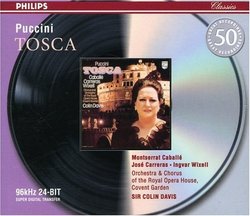 | Montserrat Caballé, José Carreras, Ingvar Wixell Puccini: Tosca Genre: Classical
|
Larger Image |
CD DetailsSimilar CDs
|
CD ReviewsMy all-time favorite recording of "Tosca" Rosomax | Boulder, CO United States | 08/20/2003 (5 out of 5 stars) "This splendid recording was made in 1976 and it found all the principals in their glorious vocal prime. Montserrat Caballe was already a world-renowned soprano whose unmistakable gorgeous pianissimos thrilled every listener in bel canto repertoire. Here she tackles Puccini's demanding score that's almost always sang by spinto sopranos. In a way, this venture paved the road for Freni's "Tosca" and Ricciarelli's "Turandot". Let us not forget that Caballe recorded "Turandot" (EMI) and Andrea Chenier (Decca). While at times one can hear her push her incredibly beautiful lyric instrument to the extreme, it really does work; the scenes become chillingly gripping. The plight of a reigning prima donna towards inevitable murder and suicide becomes very convincing. An inevitable comparison will be made to the famous Callas recording. Well, to my ears, these are apples and oranges. Callas was indeed a true spinto soprano, whereas Caballe is a lyric voice. Callas brought out the dramatic intensity of Floria Tosca, Caballe opted for vocal grandeur (let's not forget that Tosca is an opera diva). Two approaches, both completely valid. For those of you who have only heard Jose Carreras in his past-1990 years, this recording will come as a shocker. Listening to his impassioned, brilliant rendering of Cavaradossi, there is no wonder his career took off as a rocket in 70's and 80's. Here was a lyric tenor with immediately recognizable dark timbre, igniting high notes above middle E, exceptional breath control, and solid bottom register that sounded baritone-like down to low A. The diminuendos and subtle rubatos are masterfully done. Many critics at the time worried that by taking on such roles as Cavaradossi or Chenier Carreras was on his way to vocal ruin. They completely missed the point - what makes an artist great is the ability to take risks and never look back. By throwing caution to the wind, Carreras gave us a brief, but spectacular account of all major roles in the tenor repertoire, and each of his ventures was marked by intense passion and engaging delivery. The rendition of the famous "E lucevan de stelle" showcased here is IMO the best on record (and do believe me, I have them all). Simply glorious. The duets between the principals are most romantic, ranging from lovely "Mia gelosa!" to the darkly shaded final duet. Ingvar Wixell is one of the most under-rated baritones of the late 20th century. Blessed with a powerful piercing voice and exceptional acting abilities, he became most known for his title role in a film version of "Rigoletto" (also starring Pavarotti and Gruberova). His Scarpia here is everything one can wish for - a sinister character that's also a charmer, sure of his power and of his righteousness. Scarpia's true deranged self emerges only as his final minute is approaching. Samuel Ramey is luxury cast as Angelotti, this is the only time I wish Angelotti had more stage time. Domenico Trimarchi is an accomplished basso-buffo. His jovial bass-baritone was delightfully utilized in such roles as "doctor" Dulcamara and even John Falstaff. So his Sacrestan was a pleasure to hear. And, of course, Ann Murray makes a wonderful contribution in a trouser role of a shepherd boy. Sir Colin Davis makes wise use of the strings, bringing them noticeably forward to follow the voices to perfection. He also gives the singers ample time to make use of their acting abilities, but the melodic line isn't sacrificed for the dramatic effect. The ROH Covent Garden orchestra is a heavy-hitter, no doubt, but it does not drown the singers and isn't forcing them to shout. I got a feeling a lot of work went into this recording -- each of the singers is clearly given "custom" support of the orchestra. Philips finally made a good package of this recording, replacing the poorly presented DUO set. The recording is newly remastered and the package is worthy of the material it contains." For Your Consieration Montserrat Caballe's Tosca: Fatal Beau Rudy Avila | Lennox, Ca United States | 09/26/2005 (5 out of 5 stars) "Another splendid Tosca. This 1976 recording has been gloriously remastered and stars the radiant soprano Montserrat Caballe in the title role, a young Jose Carrerras as Mario Cavaradossi, baritone Ingvar Vixell as Scarpia and in the small role of Angelotti a young and not yet famous Samuel Ramey. This recording ought to be among your top choices for Tosca. Tosca is my favorite opera and I own several, among them - Birgit Nilsson's, Leontyne Price's, Mirella Freni's, Galina Vishnevska Raina Kabaivanska Carol Vaness and Katia Ricciarelli's Toscas. With Caballe and Carreras in this recording, you can't go wrong.
The sound is sensational and the music bursts with passions, both noble (Mario and Tosca's love) and darkly primal (Scarpia's lust for Tosca and desire to kill Mario). Sir Colin Davis and his Covent Garden Opera forces truly understand this music and make it powerfully emotional. There is no reason not to buy this recording, even if you already own as much Toscas as I do. This Tosca is remarkably good in that it maintains a dramatic integrity as well as sounding gorgeous, in fact the most gorgeously sung Tosca. If Montserrat Caballe will be remembered for anything when she dies (she is still very much alive, in fact she was spotted at the Met's gift shop recently to sign autographs) she will be remembered for her divine pianissimi- the part of the soprano voice that requires soft, delicate, thin sustained notes that go on forever and float efforlessly as if on a cloud. There is no way I will agree with critics that believed Caballe didn't have the right voice for Tosca simply because she was no Maria Callas. It is true that Caballe was the anti-Callas of her time, employing a full lyric voice rather than a spinto voice like that of Callas and Leontyne Price. Her voice is beautiful to hear, an audial pleasure and such moments as her Love Duet with Carreras in Act 1 in the Church, her "Vissi D'Arte" prayer and the final duet with Mario in the Castel San Angelo prison is of course amazing. But in the dramatic and suspenseful Act 3, inside Scarpia's Palace Farnese, she pushes her voice to sound appropriately horrified by the torture Mario endures under Scarpia's henchmen. She is shouting, but not screetching, and her high register is brilliant. She darkens her voice to a murderous bite when she kills Scarpia. She is one of the finer Toscas and like one critic wrote paved the way for such lyric sopranos like Mirella Freni's Tosca. Ingar Vixell is indeed underrated, overshadowed by the more popular Scarpias of Sherill Milnes, Samuel Ramey, Justino Diaz and Ruggero Raimondi. Nevertheless, he has a razor-sharp baritone voice with enough slime in it to convince us that Scarpia is the Devil in disguise. The music resonates with all the primal passions that Puccini knew the story behind it spoke of. The theatre of cruelty that is this opera has such great performers in it. Carreras is a rich, darkly handsome and well-sung Cavaradossi, Caballe is an imperious and lovely Tosca and Vixell as nasty a Scarpia as you can find." |

 Track Listings (40) - Disc #1
Track Listings (40) - Disc #1